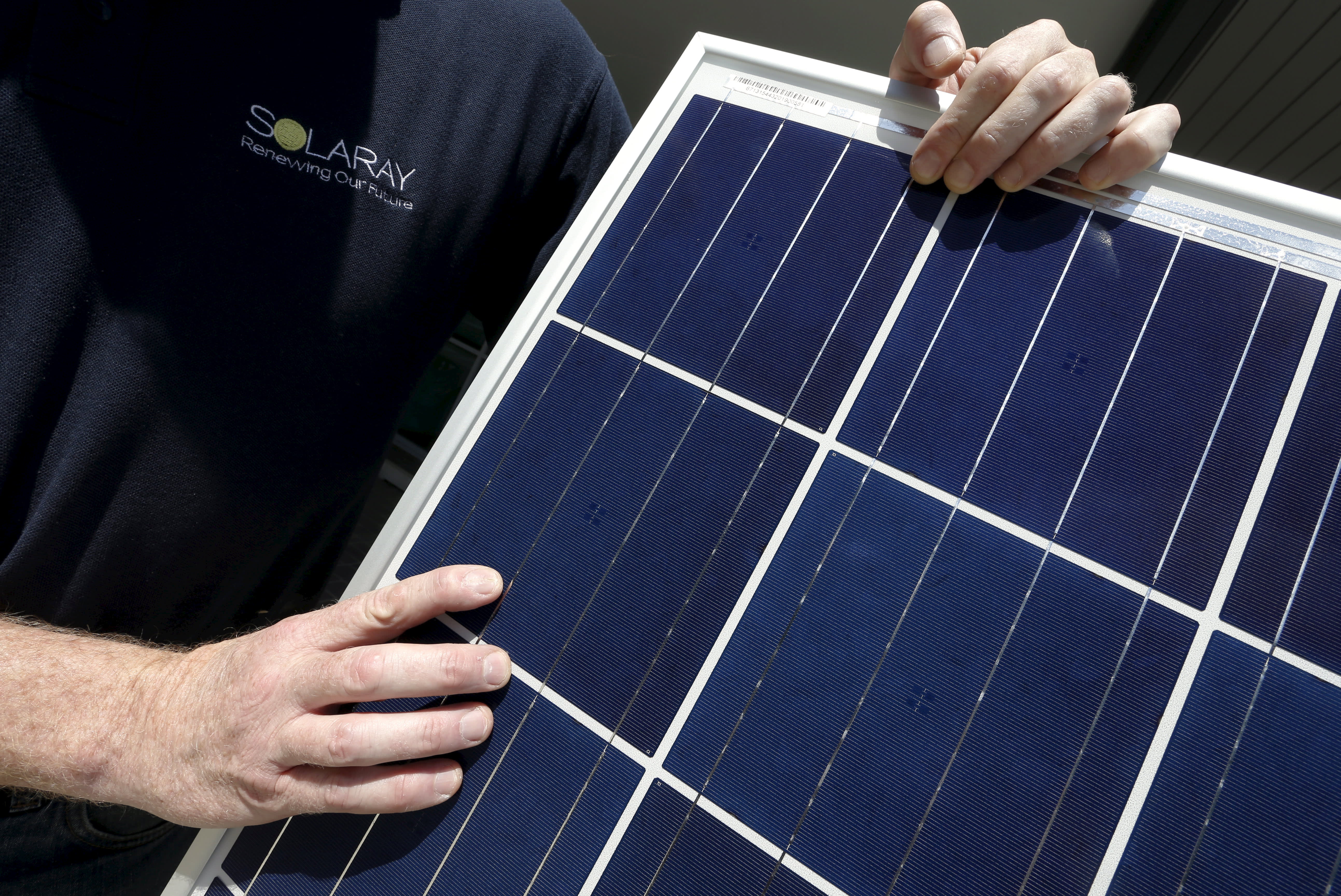This post was originally published on this site

Shares of Enphase Energy dipped more than 14% on Wednesday after the company warned about the ongoing impacts of the chip shortage.
For the first quarter the company, which makes microinverters for solar systems, beat top and bottom line estimates while also reporting record sales numbers. But weak second-quarter guidance sent shares tumbling.
Enphase expects sales to come in between $300 million and $320 million during the second quarter, compared to Street projections of $320.7 million, according to estimates compiled by FactSet.
“Looking to Q2, our shipment volumes will be constrained by semiconductor component availability,” Enphase president and CEO Badrinarayanan Kothandaraman said on the company’s earnings call.
“Although we are increasing the capacity of solar microinverters every quarter and the demand is increasing every quarter, the supply is unable to keep up with demand because of semiconductor constraints, component constraints,” he added, noting that this will lead to a “slower ramp” beginning in the third quarter.
Chip shortage pains
Enphase is far from the only company feeling the pain from the chip shortage. The slowdown has also hit the auto industry, among others, with companies including GM and Ford cutting production at several plants.
Earlier this month the White House met with executives from the auto, tech, biotech and consumer electronics industries to discuss the supply constraints.
Enphase’s dip dragged down the broader solar sector on Wednesday, with SolarEdge, Sunrun, Sunnova and SunPower all falling at least 2%.
Shares of Enphase gained 571% in 2020 making it one of the market’s top-performing names. But for 2021, the stock is now down more than 15%.
Still, Goldman Sachs, JPMorgan and Barclays were among the Wall Street firms that recommended buying the dip.
“The silver lining is obvious to us: those looking to take the long-view on ENPH will correctly view this eventually transient headwind, as a buying opportunity on any weakness,” noted Barclays, while Goldman said that “demand and margins remain robust.”
On the earnings call Kothandaraman said the company will work with new suppliers, but that component constraints will remain for the rest of the year.
CNBC’s Jim Cramer weighed in on the after hours sell-off Tuesday evening, saying that he remains a believer in the company. He said on “Mad Money” that he would start a half position at current levels, and then wait on the other half to see how things shake out. Given that the company is one of the top-performers over the last five years, he noted it’s become a “high-multiple casualty where people say ‘forget about it.'”
– CNBC’s Michael Bloom contributed reporting.
Become a smarter investor with CNBC Pro.
Get stock picks, analyst calls, exclusive interviews and access to CNBC TV.
Sign up to start a free trial today



